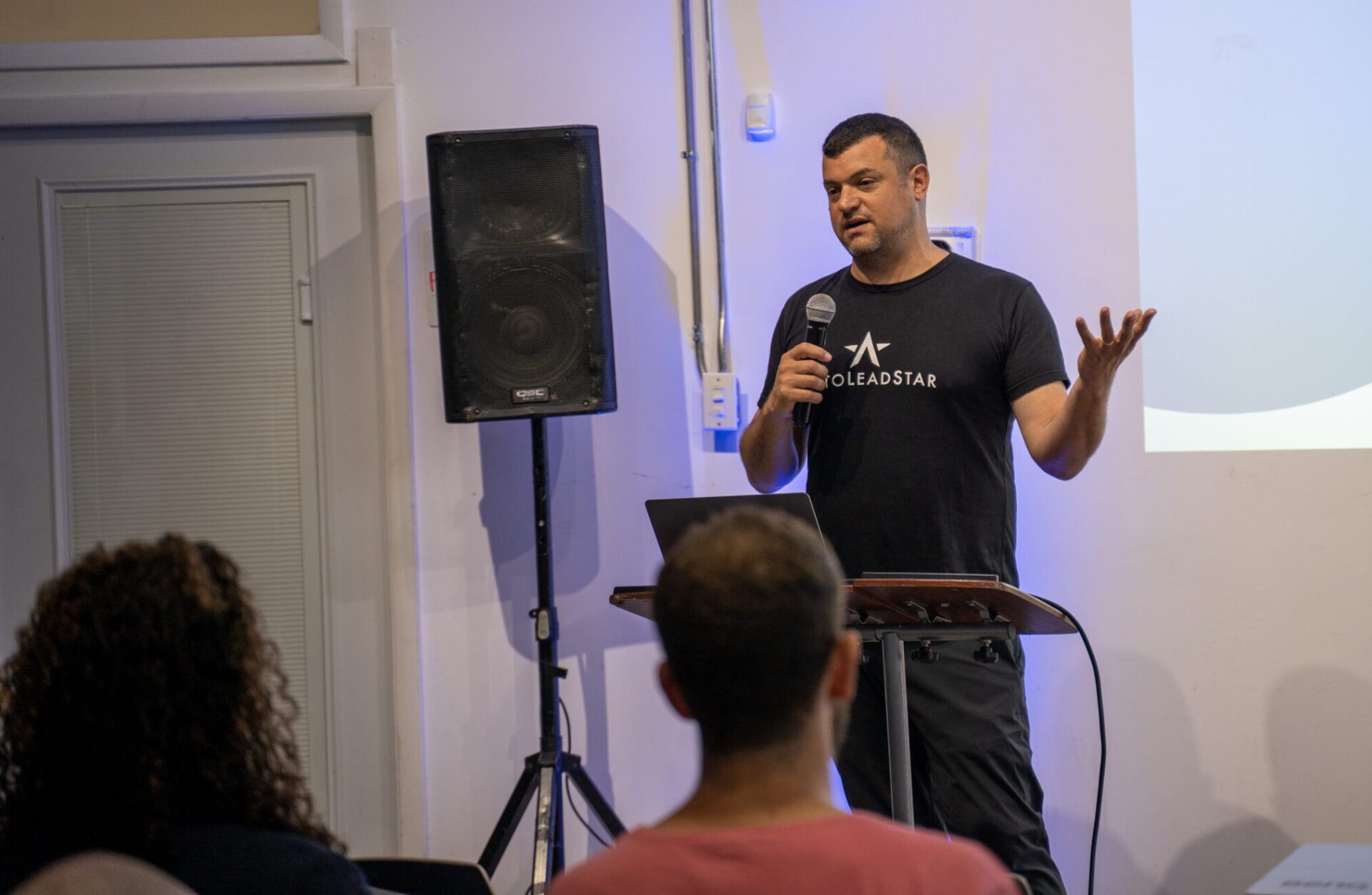From Cleveland to Jerusalem, tech startup drives auto sales
AutoLeadStar’s Aharon Horwitz managed to raise $40 million in November while cash-starved peers were laying off employees and shutting down

AUTOLEADSTAR
AutoLeadStar CEO Aharon Horwitz
JERUSALEM –— Aharon Horwitz, an immigrant to Israel from Cleveland, thought he had a terrific startup idea that would give small and medium-sized businesses the types of data tools used by global operations like Pizza Hut to track customers and build sales.
The Jerusalem-based company, dubbed 40Nuggets, had moderate success with clients ranging from Israeli homebuilders to newsletter publishers, but Horwitz ultimately burned through his cash reserves. After a venture capital investor advised Horwitz to pivot back to the U.S. and focus on car dealerships, the business soon took off. Israel was far from his target market.
Rebranding the company as AutoLeadStar with the mission to “upend digital marketing” in the car industry, Horwitz has since raised $57 million and racked up close to 1,000 dealers in cities across the country from Manchester, N.H., to Tacoma, Wash. He has doubled revenue for each of the last three years.
(Editor’s Note: AutoLeadStar changed its name to Fullpath on March 1.)
“No one wanted to talk to a company overseas,” Horwitz, 43, told The Circuit. “I got on a plane, flew to Cleveland, where I used family connections to get introductions. I essentially started volunteering. It was like I was interning at these car dealerships.”
AutoLeadStar is an example of the thousands of Israeli companies with dual identities, which opt to incorporate in the U.S., spreading their sales teams from coast to coast. The company’s R&D core, meanwhile, is concentrated near Horwitz’s home in Jerusalem and filled with software engineers and data scientists.
Horwitz’s business is making money and attracting investment at a time that others in the industry are struggling. The online automotive retailer Carvana, for example, saw its valuation plunge 98% in the last 18 months. One of its competitors in the U.S. market, Jerusalem-based Vroom, was trading at $1 a share in recent trading, a far cry from $65 in 2020.
AutoLeadStar, on the other hand, managed to raise $40 million as recently as November, at a time when investment has been drying up for startups both in Israel and the U.S., forcing many companies to lay off employees and others to shut down entirely. AutoLeadStar’s most recent funding round was led by Riverwood Capital with investment from PICO Venture Partners, Aleph and Target Global.
Horwitz never planned to get into the car business – he studied political science at Columbia University – and knew little about it when his key investor, PICO CEO Elie Wurtman, suggested in 2015 that his customer engagement software could fill a gap in the $1.5 trillion auto industry. The systems developed originally by 40Nuggets were able to help smaller car dealers compete with the majors in compiling torrents of customer data, massaging it through artificial intelligence and automation tools, and generating the leads that produce repeat sales – now and years in the future.
“It became quickly apparent that what we were developing was exactly what they were looking for,” Horwitz said in an interview at his office in Jerusalem’s Talpiot neighborhood, which is filled with repair shops and auto parts stores alongside higher-end shopping malls. Over time, he said, he “fell in love with the industry and with the potential there.”
Car dealers have enormous amounts of so-called opt-in data that they are often not equipped to fully exploit. A typical customer-relationship management system might have 50,000 contacts in it and is chock full of buyers who completed a purchase. AutoLeadStar enables the dealer the ability to say, “Hey, you were looking at this car eight years ago. Now we have a new model. Are you interested?” Horwitz said.
When he moved to Israel in 2006, Horwitz’s passion was social entrepreneurship. He and some friends founded the nonprofit organization PresenTense, which provides education and work opportunities to poor and marginalized populations in Israel, with a special focus on the country’s Arab citizens.
Gradually, Horwitz’s interest shifted to business and the devastating impact that big retailers can have on urban centers. “You pop a Walmart down and all the downtowns within 200 miles die,” he said. “We thought, ‘Why don’t we build some weapons to arm the small- and medium-sized businesses?’”
It’s not that these companies, known as SMBs, didn’t have computer tools. The problem, Horwitz said, is that the main software products such as Salesforce and HubSpot were growing in complexity as they sought to address larger, more lucrative markets.
“The SMBs wind up getting smoked by the big companies who know how to use these tools far better,” Horwitz said. “A local pizza shop just can’t keep up with what Pizza Hut can do.”
Once Horwitz set his sights on cars, everything he learned before about using customer data fell into place. Crisscrossing North America, his team pitched AutoLeadStar’s software as a one-stop shop for car dealers to integrate their sales records and contact files with business functions such as social media marketing, email campaigns and website optimization.
“Aharon’s expertise is infectious,” said Derek DeBoer, owner of TC Chevy in Ashland, Ore. “It’s hard to leave a meeting with him without being really excited about technology and your business.”
Horwitz’s enthusiastic approach to business extends to setting an example for his staff in maintaining a healthy work-family balance. When they’re hired, AutoLeadStar employees learn from a daily post on the company calendar not to disturb the boss between 6 and 7 p.m. because he’s home with his two young kids for “bath time.” Many leave the office in the afternoon to pick up their children from school and continue working remotely from home.
Given AutoLeadStar’s ability to raise money when others are cutting back, Horwitz said he’s planning to hire more developers, build greater expertise in data science and boost training for the U.S. sales team as the systems become more sophisticated. The company also plans to continue its practice of releasing a new product or feature every quarter.
“We want to double down on our tech,” Horwitz said.











